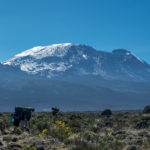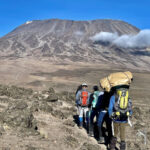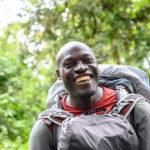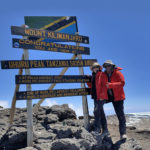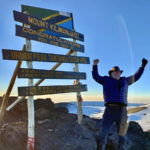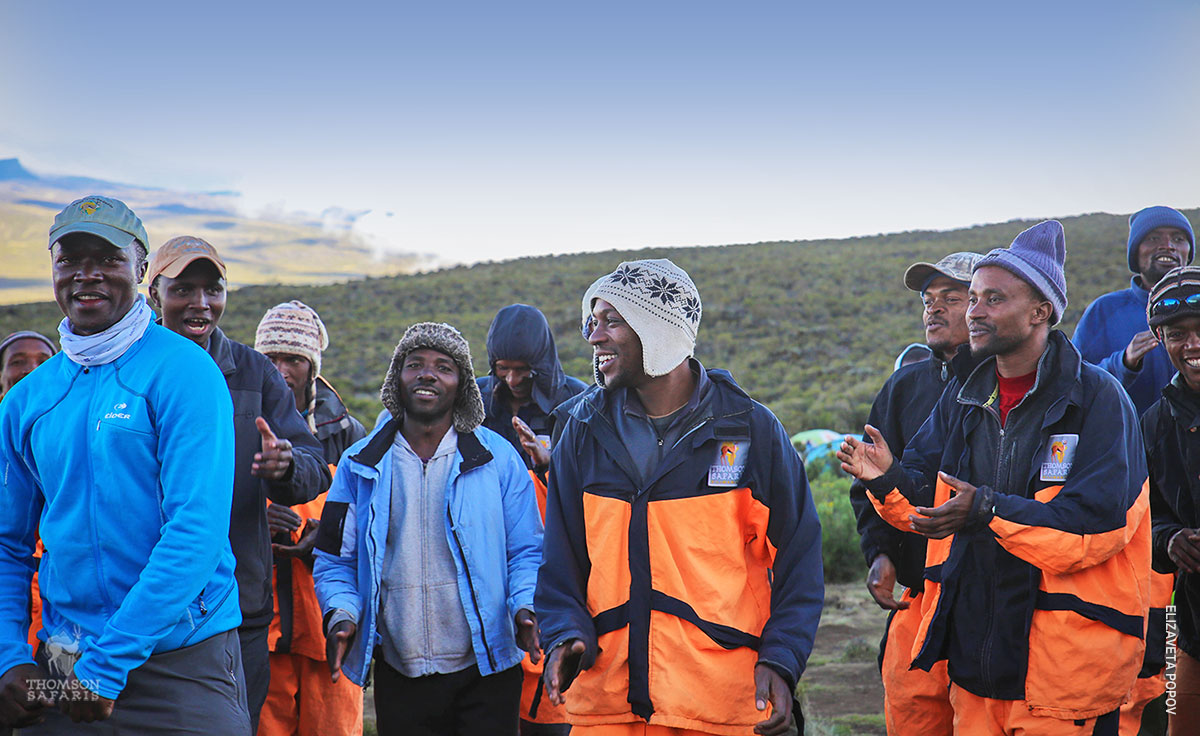
Imagine waking up at 13,200 feet on Kilimanjaro on the sixth day of your trek. A friendly face might hand you a cup of coffee as you tie your boots. Another might refill your water bottles.
Later, a team breaks down your tent, toilet tent and dining tent, stows away the food and cooking equipment and races ahead on the trail to the next campground. After trekking up to 15,300 feet over the course of the day, you find camp and dinner waiting for you.
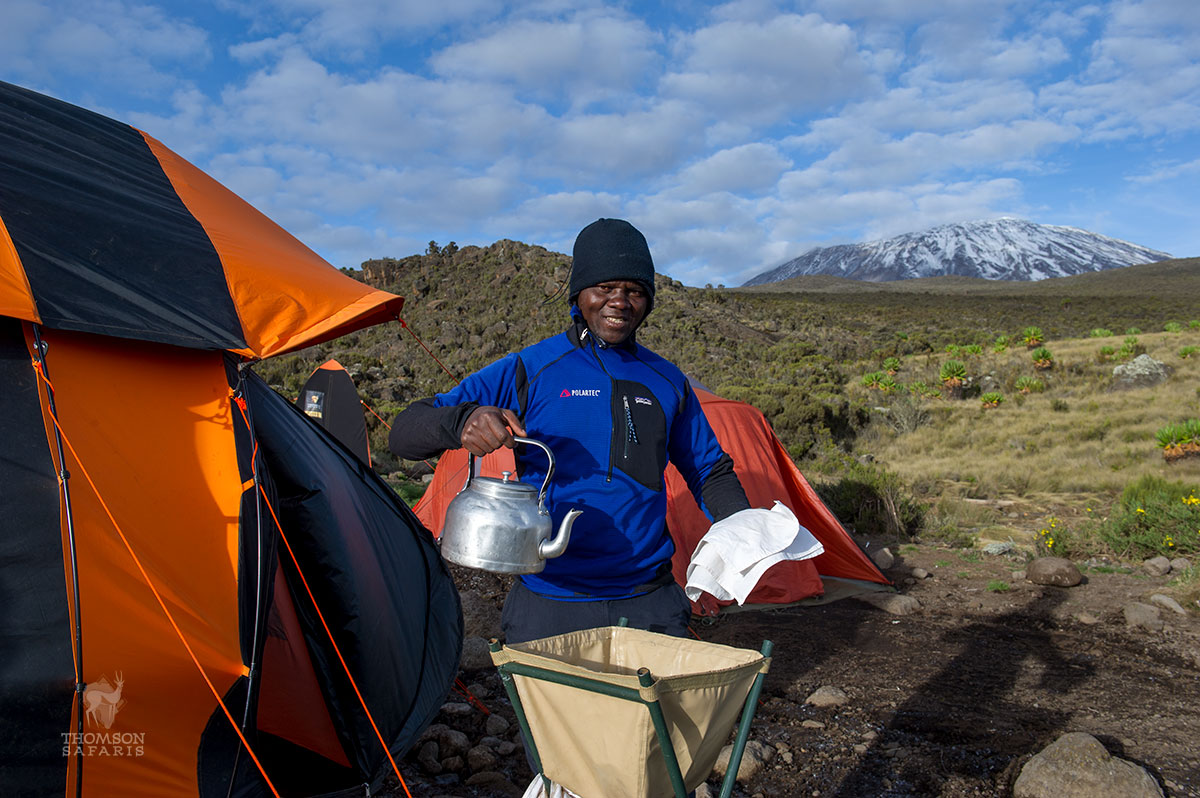
Those friendly faces belong to the porters. Their diligent work keeps you hydrated, fed, sheltered and safe on the mountain.
Together, porters carry equipment and supplies up Kilimanjaro and give climbers the support they need to reach the summit. Without them, getting to the Roof of Africa would be nearly impossible.
Carrying Equipment and Supplies
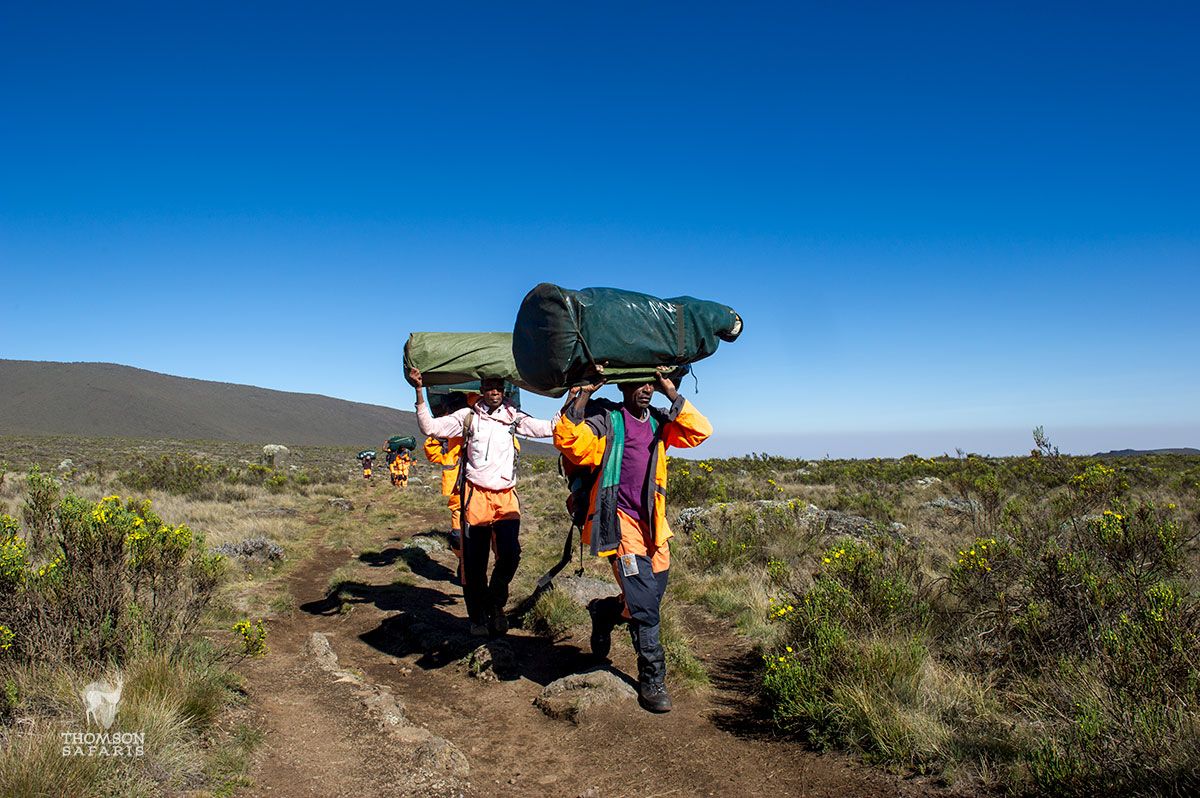
Each trek is different, but on average, it takes about 225 pounds of total luggage per trekker to get to Kilimanjaro’s peak and back, including:
- 100 pounds of food, including porters’ food
- 65 pounds of camping gear, including all sleeping, dining, toilet, kitchen and porter tents
- 33 pounds of personal gear
- 15 pounds of cooking and serving equipment
- 10 pounds of safety gear, including oxygen kits, first aid kits, a hyperbaric chamber, AED and litter
On average, that 225 pounds is split among six porters. Why? It’s simply the right thing to do. The job of a porter is challenging. Splitting the weight among many people means a safer, more efficient, socially responsible climb.
We strictly follow the Kilimanjaro Porters Assistance Project (KPAP) porter load weight limit of 20 kilograms (44-pounds), weighing bags before and during every climb.
That’s just one item from KPAP’s list of porter treatment guidelines; we comply with or exceed every standard.
Making Camp Each Day
The popular climbing advice on Kilimanjaro is “pole, pole,” which is Swahili for “slowly.” That mindset is how countless trekkers reach the summit, but some porters prefer a quicker pace.
After your tents are broken down and packed away, a few porters often race ahead on the trail to secure the best spot at the next camp ground and to finish making camp before trekkers arrive.
Making camp itself is a skill – one the porters have mastered.
And making camp goes beyond setting up a tent. Consider supplying clean water, for example. Cooks need water for food preparation and washing dishes. Trekkers need water for washing and four liters of drinking water at a minimum every day.
Kilimanjaro has no plumbing. The porter team gathers water themselves, purifies it and supplies it throughout camp. That’s what it takes to get something as vital as a drink or a bowl of water to wash your hands in on the mountain, and it’s all thanks to the porters.
Supporting You Mentally and Physically
There are countless other things porters do during the trek to support you both physically and mentally.
Take it from summiteer Anne Dickinson:
Coleman [my personal porter] greeted me every morning, and at Crater Camp when my hands were in pain from some sunburn and cold, he even tied my boots and put on my gaiters for me. He was my shadow… always with a fantastic attitude, amazing smile and terrific sense of humor.
As I walked past Elipokea Adam, our campsite manager, I asked that would it be possible for someone to inflate my sleeping pad (doing this one’s self is not good at that altitude). I remember a broad smile formed on his face, and he took me by the arm, led me to my tent and asked me to look inside. There inside was a perfectly organized tent with inflated sleeping pad awaiting. I found this to be not only extremely efficient, but even more a touching kindness.
Or Dennis Martin Smith, whose boots came apart on the mountain and were stitched back together by the porters:
I watched in amazement at Khalid Mohamed’s skills and the speed at which the repairs were taking place. Before I knew it, I looked up and my boots were rescued and my Kili trek saved. I will forever be in debt to Khalid Mohamed and all the porters who helped me make it up and down Kilimanjaro in one (safely heeled) piece.
There are specific porters who stay with the group all the way to the summit, carrying safety equipment and the like. When you need a little extra encouragement to power through the windswept, arctic conditions at the peak, they’re there to cheer you on.
This last piece may sound like a small detail, but it makes an incredible difference on the mountain.
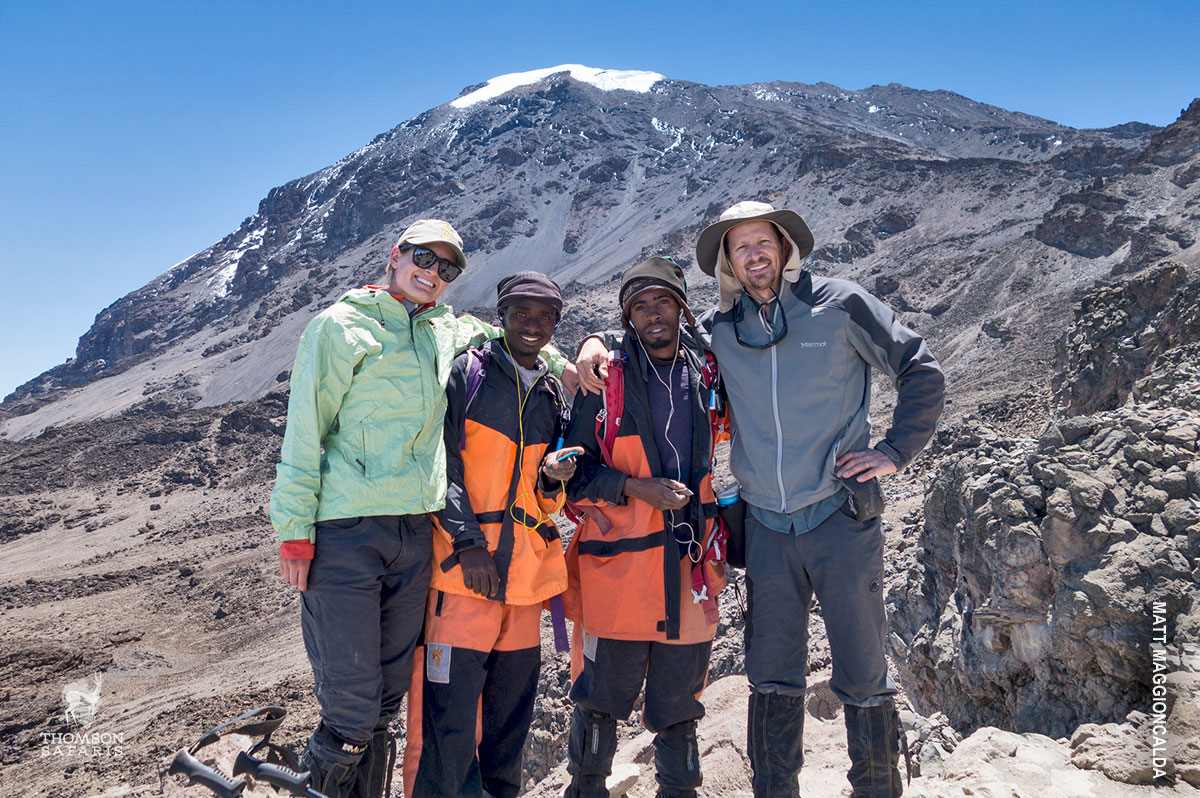
Seven Summits climber Vanessa O’Brien may have put it best while describing the porters.
Not only are they the difference between success and failure to the summit, they are the difference between a boring hike and an adventure of a lifetime!
If you’re interested in learning more about Kilimanjaro’s porters, KPAP is a fantastic source for data and historical information regarding treatment on the mountain, wages, responsibilities and more.


